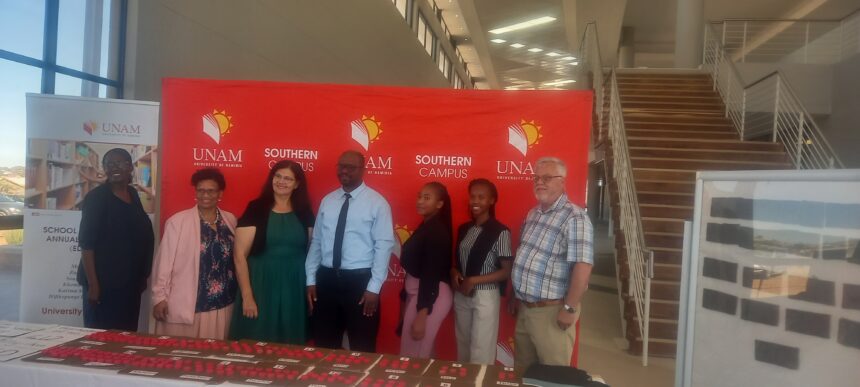KEETMANSHOOP – The University of Namibia’s (Unam) southern campus last week engaged various stakeholders to address the challenge of a lack of guidance and mentorship to student teachers. Students Representative Council (SRC) vice president Hendrik Kawana said during the discussions that it is imperative that academic support services be offered to the students when placed at schools to enhance their learning experience during practical teaching.
“Through this, their development as future educators can be enhanced to a great extent,” he observed. Kawana then cited some challenges, such as inadequate funding for transport and accommodation for those not placed at stations near their family homes, the exploitation of these students by qualified teachers by being burdened with massive workloads, as well as a lack of guidance and mentorship from experienced teachers.
“Student teachers need academic support, guidance and mentoring during lesson preparations, and additionally to develop their teaching skills,” the SRC leader recommended.
He said such interventions should also be constantly evaluated, and that feedback should be provided to the students on their performance. “These students should be actively involved in and exposed to school readiness programmes, as it will be part of their responsibility once qualified,” Kawana stated.
In his contribution, School-Based Studies’ (SBS) coordinator Simon Albin said the objective of the teaching practicum is to make provision for the SBS system to be phased out and replaced with the teaching practicum system in the new curriculum.
“Going forward, we will do things better,” he assured. Albin, who also lectures mathematics in education, said the dynamics of teacher training changed in today’s life, since private institutions, apart from tertiary education ones, are now also providing it.
As a result, the supply of teachers is now higher than the demand in some instances.
As for the challenges experienced so far in the programme, he cited a lack of support for students, a lack of commitment from students, and a lack of understanding and coordination between qualified teachers and students.
“If anyone wants to give their inputs pertaining to the new curriculum, he/she should do so, based on evidence-based research carried out.” Head of Academic Affairs Rauna Namukwambi said the teacher practicum will now be applied in schools, where student teachers will get practical skills and knowledge.
“During engagements, the different roles stakeholders will carry out during the programme will be emphasised and acknowledged,” she noted.
Namukwambi emphasised that it is important that a strong foundation should already be established in a child’s education journey at the early childhood development level, especially concentrating on English language proficiency, to prevent him/her from struggling with it at more advanced stages.
– sklukowski@nepc.com.na


